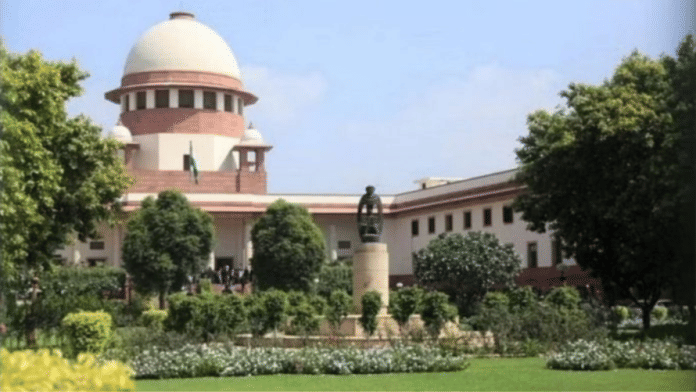The Supreme Court’s recent judgment in the Abdul Samad case, where it rejected his petition against alimony and granted his former wife the right to maintenance under Section 125 of the Criminal Procedure Code, has kickstarted discussions on the rights of Muslim women and gender equality once again and rightly so. Through this move, the court has reaffirmed the legal protections available to them irrespective of their religious background.
This ruling suddenly turned into the talk of the town since it reminded Indians of the Shah Bano case, which was a turning point in Indian legal and political history. Bano’s fight for maintenance led to a court victory, and she was granted maintenance under the same section. However, the Indian government legislated the Muslim Women (Protection of Rights on Divorce) Act, 1986, which diluted the effect of the Supreme Court’s judgment.
Hence, naturally, this ruling has sparked a wave of newfound curiosity, mingled with relief and hope. Now, whispers of change and speculation stir the air—have the laws evolved or does the past still echo in the present?
Not a codified law
While this judgment is a very welcome step in ensuring gender equality and protecting the rights of Muslim women, especially after the 2017 triple talaq judgment, it’s important to note that Section 125 of the CrPC provides financial support to any dependent, which can include a wife, children, parents, or other dependents in distress—not only Muslim divorcees. Also, this isn’t the first time the court has ruled in favour of Muslim women. After the Shah Bano case, the court upheld the right to maintenance for Muslim women in the Danial Latifi v. Union of India case and the Shamima Farooqui v. Shahid Khan case.
While it’s clear that though Section 125 provides legal recourse for Muslim women to protect their financial maintenance, it is not a codified personal law that automatically applies to all women of the community in cases of divorce. Muslim women who choose to follow personal law and receive maintenance only during the iddat period, as per the Muslim Women (Protection of Rights on Divorce) Act, can do so and those who seek maintenance beyond that period can go to court for a decision. That’s an option, but not standard procedure.
Also Read: Rahul Gandhi ignorantly linked ‘abhay mudra’ to Islam in speech. Abrahamic religions are complex
An important question
In my opinion, the provision of maintenance can offer another layer of protection to Indian Muslim women by imposing some boundaries on polygamy. Since polygamy is still permitted under Muslim personal law, women whose husbands marry again often lack the financial means to meet their needs which, forces them to endure hardship. But having the opportunity to continue receiving maintenance even after separation would encourage these women to file for divorce without worrying about the repercussions. Men would also understand that they cannot just divorce their first wife and leave her without responsibilities, even if they marry another.
An important question here: How many women would be courageous enough, aware enough, or even have their own agency to go to court and claim their maintenance from their ex-husband without their family’s support and against societal pressure when they believe it’s against personal laws? We have seen the Shah Bano case and how it triggered conservatives and radicals. Even then-Prime Minister Rajiv Gandhi, the most powerful man in India at the time, made a poor, helpless elderly woman give up her rights. It saddens me every time I think about how the most powerful Indian couldn’t protect a woman, and how, instead of standing by her, bowed down to accommodate fundamentalists.
Anyway, back to the initial point: In a society where such a mindset prevails, how many individual women and their families will dare to approach the court? Can this be a solution?
Also Read: Hamare Baarah outrage shows even mild criticism of Muslims is seen as Islamophobia
The real solution
Alimony is a family civil matter where personal law is often applicable. Section 125 of the CrPC, a criminal provision, circumvents disputes arising from personal laws and ensures women a fair chance to get justice. Unless we address the root cause, which is personal civil codes, many women will never be able to obtain justice. Protecting women’s rights through legal remedies shouldn’t be optional. While this judgment is a positive step, it is not a real solution to discrimination. We need to implement a uniform civil code to protect the legal rights of Indian women, regardless of their background and religion.
Moreover, the ruling of the Supreme Court that the 1986 Act and maintenance under Section 125 of the CrPC can coexist in their respective jurisdictions sends a clear message: Muslim men cannot approach the court citing personal laws to absolve themselves from providing maintenance, as the petitioner in this case were arguing. This decision upholds the principle that personal laws cannot supersede legal obligations to provide maintenance under secular CrPC, thereby confirming the primacy of secular law. This gives me hope for the future—that someday, we will see laws based on gender parity and equality for every Indian woman. Until then, decisions such as this one offer much-needed protection and reinforce the utility of secular law in upholding women’s rights.
Amana Begam Ansari is a columnist and TV news panelist. She runs a weekly YouTube show called ‘India This Week by Amana and Khalid’. She tweets @Amana_Ansari. Views are personal.
(Edited by Humra Laeeq)






